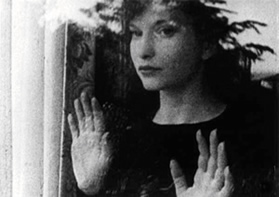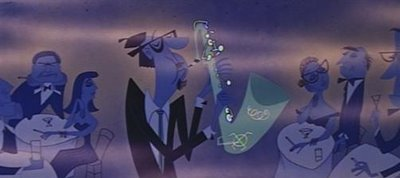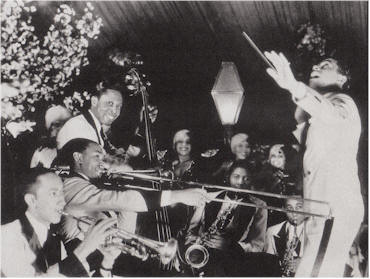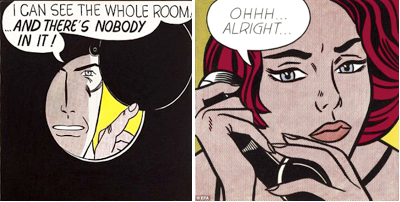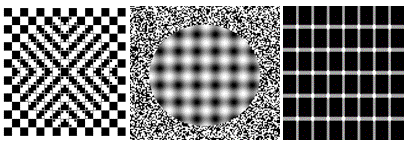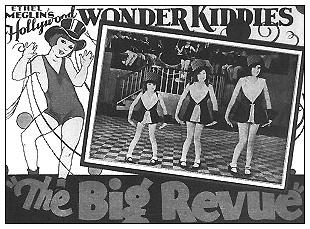Oddball Films presents Strange Sinema 46, a monthly screening of offbeat films, old gems and newly discovered oddities both entertaining, experimental and eye-opening, all culled from Oddball Films 50,000 film archive. This 46th installment includes A Ritual in Transfigured Time (1946), the High Priestess of experimental cinema Maya Deren’s sensual and metaphorically elusive study of the female psyche, Toot, Whistle, Plunk, Boom (1953), a “beatnik” influenced Academy Award winning short in stunning Technicolor, Trends (1967) a quirky, animated futurist film by Hungary’s first animated feature film director, Blowtop Blues (1945) featuring wild man Cab Calloway and Orchestra swingin’ through a great number, Experimental Psychology of Vision (1941), a way-out eye-popping film featuring phi phenomenon, visual other optical illusions, Help My Snowman is Burning Down (1964) Carson Davison’s award-winning beatnik rhapsody with jazz score by the Gerry Mulligan Quartet, A Lichtenstein in London (1968), a tour de force on site doc of the American pop artist’s famous Tate Modern show produced by Bruce Beresford featuring commentary by Lichtenstein, gallery views and shots of some of his most well known paintings and sculptures. Plus! Gay psychedelia!
Maya Deren was one of the most influential female avant garde filmmakers of the 20thcentury. She was dancer, choreographer, poet, writer and photographer. In the cinema she was a director, writer, cinematographer, editor, performer, entrepreneur and pioneer in experimental filmmaking in the United States. She collaborated with Marcel Duchamp and her social circle included the likes of Andre Breton, John Cage and Anais Nin. This enigmatic film is a social event choreographed in the manner of a dance, illuminated by concepts drawn from Greek legend. This is a sensual and metaphorically elusive study of the female psyche often considered one of filmmaker’s most intriguing works.
For more info on Deren’s remarkable career click here.
This Academy Award winner is in stunning Technicolor and a “beatnik” classic of mid-century animated design. It’s been ranked one of the top 50 greatest cartoons of all time.
Having just been informed that a 1961 painting by the late pop artist Roy Lichtenstein “I Can see the Whole Room! ….and There’s Nobody In It!’ has just sold for $43 million dollars Oddball thought it might be a good time to screen this British Film Institute Bruce Beresford directed film shot at the Tate Modern show in London in 1968. This film records the impact of American artist Roy Lichtenstein's (b.1923) work on the public and their reactions to it in the context of a retrospective exhibition at the Tate Gallery, London, which attracted unprecedented attention and proved one of the most popular ever held there. Shows his early paintings based on magazine ads and comic strip cartoons, such as Stove 1962 and Whaam! 1963, groups of girls' heads and landscapes and several sculptures. Commentary juxtaposes remarks by the public approving, questioning, or even rejecting the work, with extracts from previously recorded interviews with the artist made by the critics Alan Solomon for WNET, New York, and David Sylvester for the BBC.
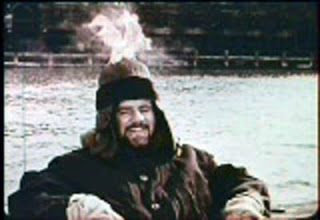
Help, My Snowman’s Burning Down (Color, 1964) This Academy award-nominated short (and winner of 14 international awards) by Carson Davidson stars Bob Larkin (later in the cult film Putney Swope) as a Beatnik who lives on a boat dock off Manhattan with only bathroom furnishings. A visceral tapestry woven together by stop motion and surreal special effects, this film is an Oddball audience favorite. With original jazz score by the Gerry Mulligan Quartet.




